"5 days Writing Challenge - Meet a genius (Mahatma Gandhi)" Day 4/@mikemm/ 14/10/2021
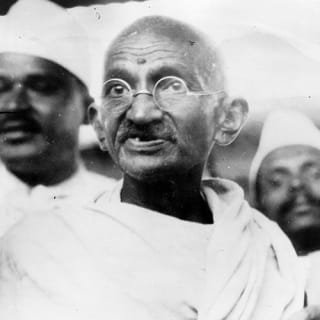
Mahatma Gandhi
Source
Fellow Steemians in @SteemAlive , today presents another opportunity to talk about a re-known figure in history. It's day 4 of the contest and it will not fall short of excitement.
Introduction
History is full of man's inhumanity to man. At the height of the British rule over India, emerged a man who changed the cause of India's history. I want to present to you Mahatma Gandhi. A lawyer, activist, social reformer and a religious icon.
History
Mahatma Gandhi, byname of Mohandas Karamchand Gandhi, (born October 2, 1869, Porbandar, India—died January 30, 1948, Delhi), Indian lawyer, politician, social activist, and writer who became the leader of the nationalist movement against the British rule of India. As such, he came to be considered the father of his country. Gandhi is internationally esteemed for his doctrine of nonviolent protest (satyagraha) to achieve political and social progress
In the eyes of millions of his fellow Indians, Gandhi was the Mahatma (“Great Soul”). The unthinking adoration of the huge crowds that gathered to see him all along the route of his tours made them a severe ordeal; he could hardly work during the day or rest at night. “The woes of the Mahatmas,” he wrote, “are known only to the Mahatmas.” His fame spread worldwide during his lifetime and only increased after his death. The name Mahatma Gandhi is now one of the most universally recognized on earth.
Early Life/Background
Gandhi was the youngest child of his father’s fourth wife. His father—Karamchand Gandhi, who was the dewan (chief minister) of Porbandar, the capital of a small principality in western India (in what is now Gujarat state) under British suzerainty—did not have much in the way of a formal education. He was, however, an able administrator who knew how to steer his way between the capricious princes, their long-suffering subjects, and the headstrong British political officers in power.
Gandhi’s mother, Putlibai, was completely absorbed in religion, did not care much for finery or jewelry, divided her time between her home and the temple, fasted frequently, and wore herself out in days and nights of nursing whenever there was sickness in the family. Mohandas grew up in a home steeped in Vaishnavism—worship of the Hindu god Vishnu—with a strong tinge of Jainism, a morally rigorous Indian religion whose chief tenets are nonviolence and the belief that everything in the universe is eternal. Thus, he took for granted ahimsa (noninjury to all living beings), vegetarianism, fasting for self-purification, and mutual tolerance between adherents of various creeds and sects.
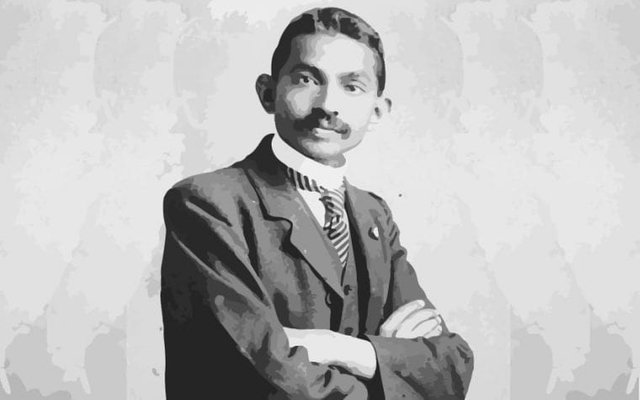
Young Mahatma Gandhi
Source
Education
He received his primary education in the city of Porbandar.
He was not very good at academics or in any sporting activities, however, he grasped some of the most important aspects of his education including good morals. He was also a shy and timid student. The school he went to was a school consisting of boys only and was located on the Western Coast of India.
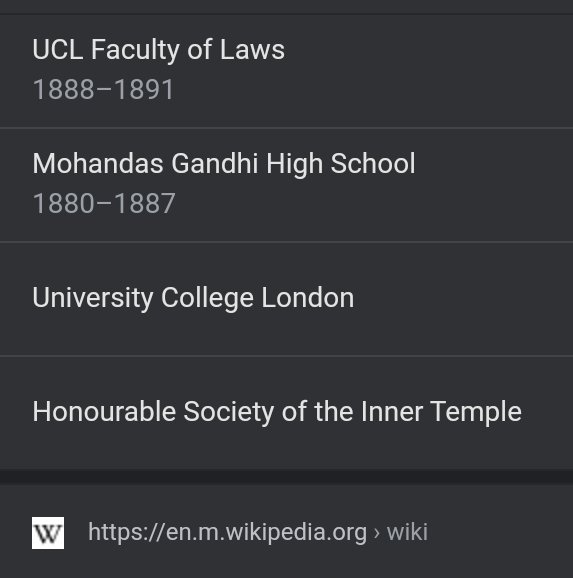
Family Life
In 1885, Gandhi and his wife Kasturba (née Kasturbai Makhanji Kapadia) had their first baby, who survived only a few days.The Gandhi couple had four more children, all sons: Harilal, born in 1888; Manilal, born in 1892; Ramdas, born in 1897; and Devdas, born in 1900.
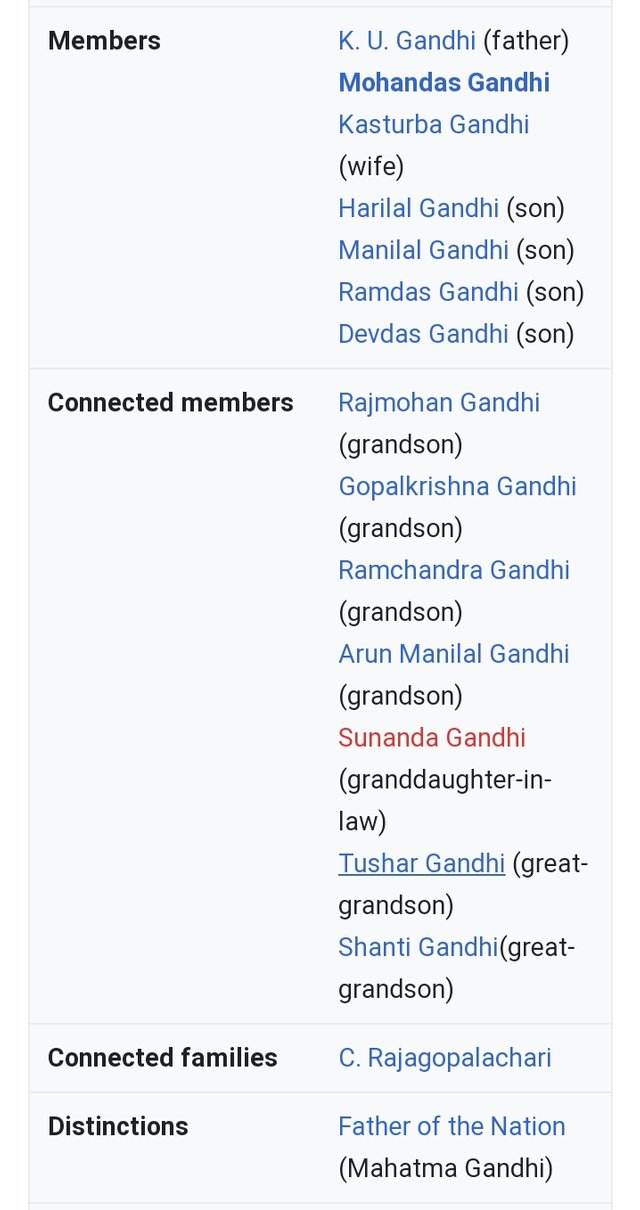
Struggles
He began his activism as an Indian immigrant in South Africa in the early 1900s, and in the years following World War I became the leading figure in India’s struggle to gain independence from Great Britain. Known for his ascetic lifestyle–he often dressed only in a loincloth and shawl–and devout Hindu faith, Gandhi was imprisoned several times during his pursuit of non-cooperation, and undertook a number of hunger strikes to protest the oppression of India’s poorest classes, among other injustices. After Partition in 1947, he continued to work toward peace between Hindus and Muslims.
Independence Of India
Mahatma Gandhi was the leader of India’s non-violent independence movement against British rule and in South Africa who advocated for the civil rights of Indians. Born in Porbandar, India, Gandhi studied law and organized boycotts against British institutions in peaceful forms of civil disobedience.
Salt March
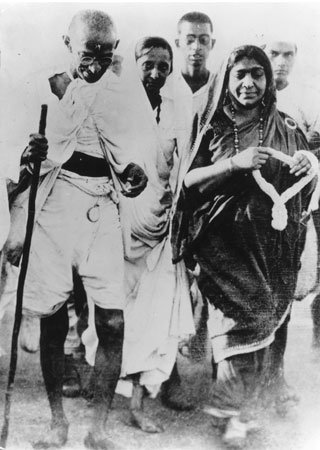
Gandhi's Salt March
Source
Salt March, also called Dandi March or Salt Satyagraha, major nonviolent protest action in India led by Mohandas (Mahatma) Gandhi in March–April 1930. The march was the first act in an even-larger campaign of civil disobedience (satyagraha) Gandhi waged against British rule in India that extended into early 1931 and garnered Gandhi widespread support among the Indian populace and considerable worldwide attention.
Death
The 20th century’s most famous apostle of non-violence himself met a violent end.
On 29 January one of the fanatics, a man in his thirties named Nathuram Godse, returned to Delhi, armed with a Beretta automatic pistol. About 5pm in the afternoon of the next day, the 78-year-old Gandhi, frail from fasting, was being helped across the gardens of Birla House by his greatnieces on his way to a prayer meeting when Nathuram Godse emerged from the admiring crowd, bowed to him and shot him three times at point-blank range in the stomach and chest. Gandhi raised his hands in front of his face in the conventional Hindu gesture of greeting, almost if he was welcoming his murderer, and slumped to the ground, mortally wounded. In the confusion there was no attempt to call a doctor or get the dying man to hospital and he died within half an hour.
Why I Chose Him
I chose him for the following reasons:
He came from a humble background.
He overcame some traits like shyness and became an outspoken personality.
Although some of his struggles with the British lead to blood shed and death, he was a pro pounder of non-violent agitation.
He took interest in his peoples problems and defended their interests.
He was a gentle and humble personality.
He was also a devoted religious person.
He was a family man showing him to be a responsible.
More to his accolades are his wonderful quotes. Below are some I find interesting:
" Live as if you were to die tomorrow.Learn as if you were to live forever."
" If I have the belief that I can do it. I shall surely aquire the capacity to do it even if I may not have it at the beginning."
" You must not lose faith in humanity. Humanity is like an ocean, if a few drops of the ocean are dirty, the ocean does not become dirty."
" You can chain me,
You can torture me,
You can even destroy this body,
but you will never imprison my mind."
My best is this.
" Strength does not come from winning. Your struggles develop your strengths. When you go through hardships and decided not to surrender, that is strength."
Conclusion
The life and history of this great humble genius Mahatma Gandhi is really an inspiration to me and those who come from a low or humble background. I have learned that strength sometimes may not be raw or physical but can be a strong mindset or latent intelligence. The greatest lesson for me is this, never belittle or underestimate anyone. No one knows when the genius in the let down person may arise.Thank you.
Source;
www.thequotes.in
Wikipedia
History.com
Britannica.com
This is a leader for all generations to learn from, he is a genius that should never be forgotten. Thanks for sharing.